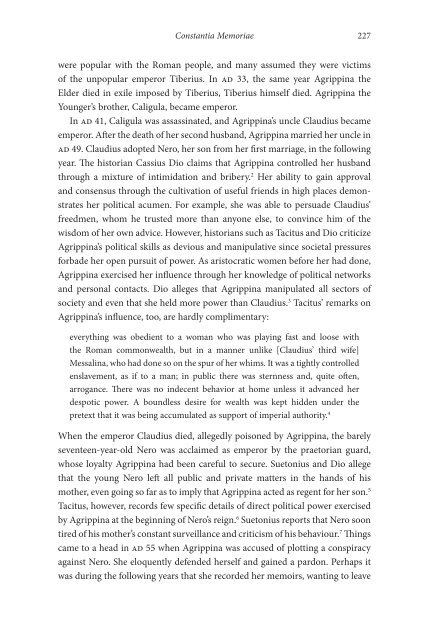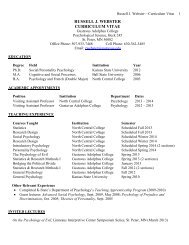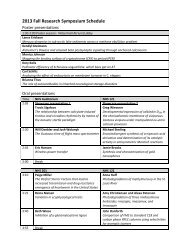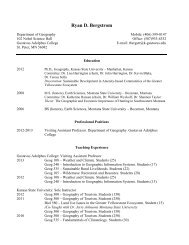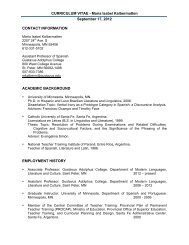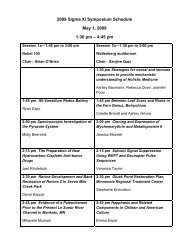Seduction and Power
Seduction and Power
Seduction and Power
You also want an ePaper? Increase the reach of your titles
YUMPU automatically turns print PDFs into web optimized ePapers that Google loves.
Constantia Memoriae 227<br />
were popular with the Roman people, <strong>and</strong> many assumed they were victims<br />
of the unpopular emperor Tiberius. In ad 33, the same year Agrippina the<br />
Elder died in exile imposed by Tiberius, Tiberius himself died. Agrippina the<br />
Younger’s brother, Caligula, became emperor.<br />
In ad 41, Caligula was assassinated, <strong>and</strong> Agrippina’s uncle Claudius became<br />
emperor. After the death of her second husb<strong>and</strong>, Agrippina married her uncle in<br />
ad 49. Claudius adopted Nero, her son from her first marriage, in the following<br />
year. The historian Cassius Dio claims that Agrippina controlled her husb<strong>and</strong><br />
through a mixture of intimidation <strong>and</strong> bribery. 2 Her ability to gain approval<br />
<strong>and</strong> consensus through the cultivation of useful friends in high places demonstrates<br />
her political acumen. For example, she was able to persuade Claudius’<br />
freedmen, whom he trusted more than anyone else, to convince him of the<br />
wisdom of her own advice. However, historians such as Tacitus <strong>and</strong> Dio criticize<br />
Agrippina’s political skills as devious <strong>and</strong> manipulative since societal pressures<br />
forbade her open pursuit of power. As aristocratic women before her had done,<br />
Agrippina exercised her influence through her knowledge of political networks<br />
<strong>and</strong> personal contacts. Dio alleges that Agrippina manipulated all sectors of<br />
society <strong>and</strong> even that she held more power than Claudius. 3 Tacitus’ remarks on<br />
Agrippina’s influence, too, are hardly complimentary:<br />
everything was obedient to a woman who was playing fast <strong>and</strong> loose with<br />
the Roman commonwealth, but in a manner unlike [Claudius’ third wife]<br />
Messalina, who had done so on the spur of her whims. It was a tightly controlled<br />
enslavement, as if to a man; in public there was sternness <strong>and</strong>, quite often,<br />
arrogance. There was no indecent behavior at home unless it advanced her<br />
despotic power. A boundless desire for wealth was kept hidden under the<br />
pretext that it was being accumulated as support of imperial authority. 4<br />
When the emperor Claudius died, allegedly poisoned by Agrippina, the barely<br />
seventeen-year-old Nero was acclaimed as emperor by the praetorian guard,<br />
whose loyalty Agrippina had been careful to secure. Suetonius <strong>and</strong> Dio allege<br />
that the young Nero left all public <strong>and</strong> private matters in the h<strong>and</strong>s of his<br />
mother, even going so far as to imply that Agrippina acted as regent for her son. 5<br />
Tacitus, however, records few specific details of direct political power exercised<br />
by Agrippina at the beginning of Nero’s reign. 6 Suetonius reports that Nero soon<br />
tired of his mother’s constant surveillance <strong>and</strong> criticism of his behaviour. 7 Things<br />
came to a head in ad 55 when Agrippina was accused of plotting a conspiracy<br />
against Nero. She eloquently defended herself <strong>and</strong> gained a pardon. Perhaps it<br />
was during the following years that she recorded her memoirs, wanting to leave<br />
9781441177469_txt_print.indd 227 29/04/2013 11:23


